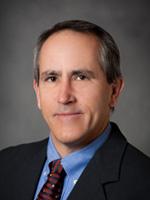 Samuel Kline, MD, board-certified orthopedic hand surgeon, is in private practice with Atlantic Orthopaedic Specialists. He practices at Sentara Leigh Hospital in Norfolk, Va. Dr. Kline is a member of the American Society of Surgery of the Hand. He received his medical degree from Indiana University in Bloomington. Dr. Kline completed both his internship and residency at The Johns Hopkins Hospital in Baltimore. He completed his fellowship training in hand and microvascular surgery at the Raymond M. Curtis Hand Center in Baltimore.
Samuel Kline, MD, board-certified orthopedic hand surgeon, is in private practice with Atlantic Orthopaedic Specialists. He practices at Sentara Leigh Hospital in Norfolk, Va. Dr. Kline is a member of the American Society of Surgery of the Hand. He received his medical degree from Indiana University in Bloomington. Dr. Kline completed both his internship and residency at The Johns Hopkins Hospital in Baltimore. He completed his fellowship training in hand and microvascular surgery at the Raymond M. Curtis Hand Center in Baltimore.
Here he discusses the intricacies of hand surgery and keeping abreast with the latest technology to provide the best possible patient care.
Q: Why did you choose to become an orthopedic surgeon?
Dr. Samuel Kline: During my orthopedic residency at Johns Hopkins, I saw a variety of musculoskeletal problems from pediatric patients with hand deformities, acute trauma, patients requiring adult reconstruction and osteoporosis in older patients. I was drawn to the orthopedic specialty by the challenge of keeping these people active and functional in their daily lives. In addition, I like putting things back together and especially intricate equipment, such as the human hand.
Q: How has hand surgery changed since you first began practice?
SK: The subspecialty has made great inroads into restoring hand function through improved technology, on-going training and better outcomes data.
Q: What do you think are currently the most important research developments in orthopedic and hand surgery?
SK: Advances in lock fixation technology for improved fracture care resulting in the minimal use of external fixation is one of the most important trends. Minimally invasive surgery like endoscopic carpal tunnel release, endoscopic cubital tunnel release, wrist and elbow arthroscopy and treatment of Dupuytren's contracture with collagenation injections instead of surgery have all revolutionized the field of hand surgery.
Q: What is the most difficult case you have encountered in your career?
SK: Devastating trauma in a patient is always the most challenging case seen in my practice.Over time, experience gained in prior cases has provided a clear pathway in seeing a clear solution toward a patient's treatment and recovery.
Q: What do you still hope to accomplish as an orthopedic surgeon?
SK: Since the field of orthopedic hand surgery continues to rapidly evolve, I am committed to caring for patients by utilizing the most up-to-date techniques and technology available. Using this approach maximizes benefits to my patients through quicker recovery times and improved outcomes.
More Articles on Sports Medicine:
Selecting the Right Procedures & Implants in Orthopedics: Q&A With Dr. Timothy Bhattacharyya of OrthoBethesda
Catering to the Patient & Practicing Internationally: Q&A With Dr. Sonu Ahluwalia of Cedars Sinai Medical Center
4 Points on Failure After Rotator Cuff Repair Surgery


